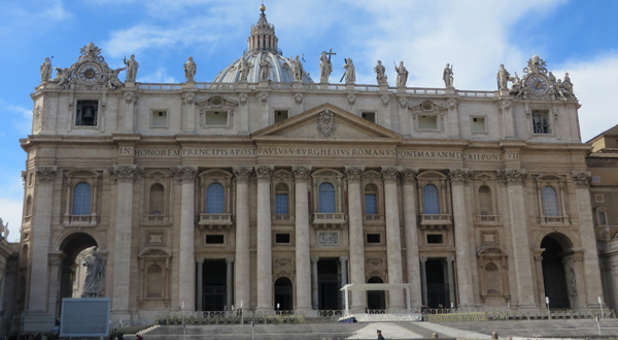Vatican Puts an End to Selling Blessings, Vendors Cry Foul
Rino Pensa has been making personalized papal blessings on parchments for 65 years, a mainstay of his small business creating intricately lettered scrolls marking milestones like baptisms and marriages.
The Vatican has decided that as of Jan. 1 his workshop and about 60 other producers and stores that have been in the papal blessing business for decades will no longer be allowed to make or sell them, a decision vendors say could cost up to 500 jobs.
The Vatican’s office of papal charities, the Apostolic Almonry, sent a letter to calligraphers and stores in April reminding them of a 2010 decision that their concessions would end this year. The Vatican would resume making all parchments, as it did before the 1950s.
“After more than 60 years, I feel like an old rag that is being thrown away,” Pensa said in his calligraphy workshop in Rome, where he, his wife and son produce parchments for the Vatican as well as diplomas and elaborate certificates for other clients.
Calligraphers and store owners sent several appeals to Pope Francis arguing the move contradicted his defense of workers’ rights. He has yet to respond.
The Vatican’s letter spoke of a “return to the origins” when Pope Leo XIII allowed papal blessings on parchments to be sold at the end of the 19th century to raise funds for charities. All were then produced in-house.
At the Vatican, they cost from 6 to 30 euros depending on the model, how much is computer generated, and how much hand-decorated. They include flower designs, sketches of Rome churches, a photograph of the pope and script lettering.
While the Vatican capped the price outsiders could charge—26 euros for plain models and 52 for elaborate ones—vendors were selling some for more than twice that.
“We have had a lot of problems with that,” said Monsignor Diego Ravelli of the papal alms office, adding that the estimate of 500 jobs imperiled was “greatly exaggerated.”
The Vatican gets three euros for each parchment made by outsiders. By excluding them, they will give more money to the needy. “It’s not a souvenir. You are not paying for a blessing but contributing to the pope’s charities,” Ravelli said.
About 337,000 blessings were made in 2013, nearly two-thirds by the Vatican. In 2013, 1.25 million euros was disbursed, most to help needy Italians pay for rent or utilities.




























































